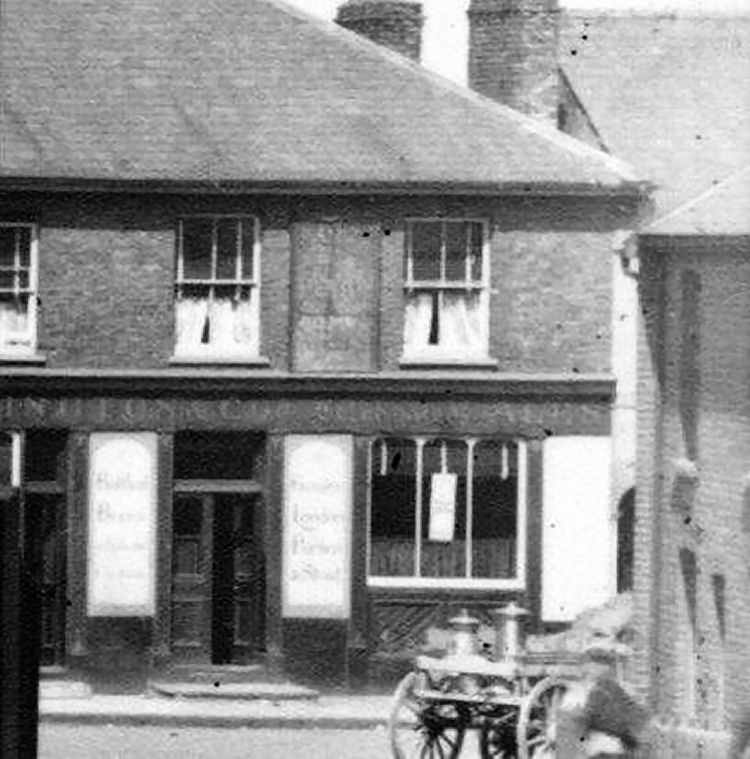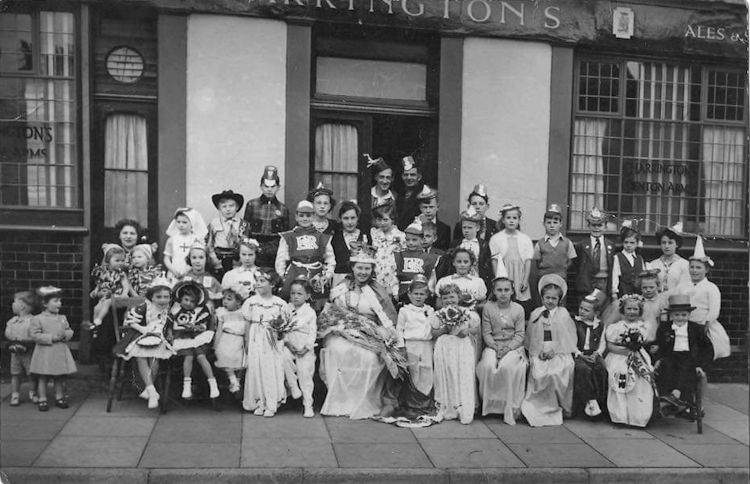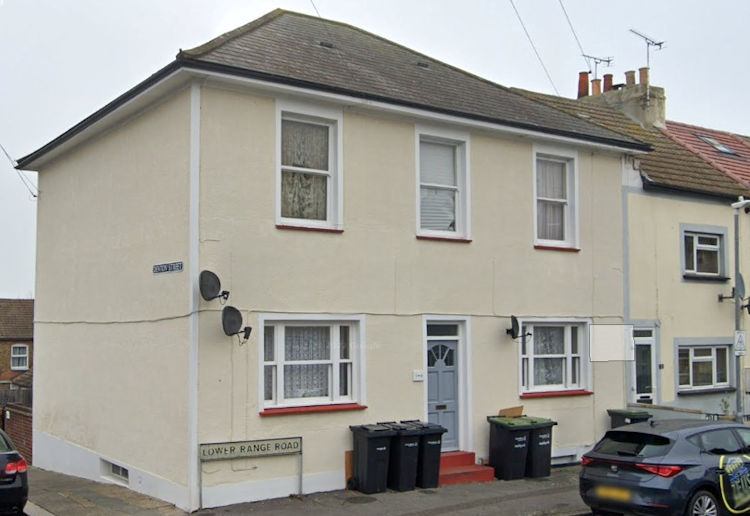|
Gravesend Reporter, North Kent and South Essex Advertiser, Saturday 24 October 1874.
Destructive fire at Denton.
A great and destructive fire occurred within a stones throw of the
Milton-next-Gravesend boundary in the parish of Denton late on Thursday
night. It originated - in what way unknown - at the yard of Mr. May,
hooper, near the "Denton Arms," where there were stacks of bavins and
piles of hoops beside a large quantity of other wood, which, being on
fire, would of course defy all attempts to extinguish it. Thus it was on
Thursday night. But the site was one of magnificent grandeur, and while
stirring the sympathy of the onlookers towards those who would suffer
therefrom it could not fail alike to excite admiration. Singularly
enough, one of the crowd was overheard to say that only on that morning
when passing a yard he had remarked to a friend that "it would be a case
if anyone were to throw a fusee into the yard." It is not possible or
even probable that some such carelessness caused the conflagration.
Reflecting the usual brilliancy upon the horizon, a vast concourse of
persons were attracted to the scene of the fire; in fact the town seemed
all bustle with excited people, hastening in the direction of the fire.
Not a few were turned back by the false report that it was a large
bonfire. The assembled crowd, stretching some distance back into the
field opposite, formed a half circle around the fire, leaving a clear
course for the carrying out of the operation of the braver ones. Amid
the confusion it was a difficult matter to detect who was who, but his
Worship the Mayor (W. Luke, Esq.), rendered himself prominent by the
anxious interest he manifested by doing what he could towards ensuring
the safety of adjoining property and combining the flames to his narrow
limits as possible. Notwithstanding the praiseworthy efforts that were
put forth, two of the houses on each side caught the fire and the roofs
were brought down. But for these houses on either side being detached
from others by narrow passages effects of the fire would in all
probability have extended much further than is the case. It was truly
pitiable to see the poor people - whose houses seemed doomed to be razed
to the ground by the raging flames - pitching - or having pitched out
for them - their furniture into road and hold over the hedge into the
opposite field; the emergency rendered care out of the question, hence
the furniture was more or less broken and damaged by the rough handling
it received. Being deposited in the field in piles and immediately in
front of the houses from which they had been taken, it was carefully
guarded by a body of soldiers told off for that purpose.
The first appearance of the fire were seen about 10 o'clock, and
although Superintendent Berry had a numerous staff of the police and
fireman, were early on the spot, nearly two hours elapsed before the
engines could be put into action, owing to an almost entire absence of
water; when obtained it had to be brought from the hydrant below Milton
church, a distance of 700 yards. In the meantime, however, active
measures were adopted to save everything that was it was possible to
extract from the burning mass. Some 200 or more soldiers, with the
engine, having been marched, on quick time, from the barracks, they
rendered most important and by bravely plucking from the very seat of
the fire, a large number of bavins and other combustibles. The two
houses on the west side were forcible entered and quickly relieved of a
small portion of their furniture, but those on the east side could not
be interfered with. Although late, it was indeed fortunate that a
plentiful supply of water was obtained, for without this the whole row
of houses must have been burnt down.
Most of the property was insured. The contents of the hoop factory were
insured in the Britannia in the sum of £500, the bavins being separately
insured in £100. Mr. May himself resided in the first house on the east
of the factory, his furniture being insured for £100; the adjoining
house was occupied by Mr. Michael Sweeney, and it is believed he was not
insured - the house itself being the property of Mr. Elliott, farmer,
was insured in the Kent; the third house divided from the others by
narrow passage was only slightly damaged by fire and water. On the
opposite side of the factory, vis., that on which the "Denton Arms" is
situated, the two houses which were burnt, belonging to Mr. Starling,
pilot, were insured in the Liverpool, London, and Globe, for £500. The
first house was occupied by the owner, the furniture being insured for
£200; the second house was occupied by Mrs. Hughes who was insured in
the Britannia for £150.
The horses and carts that were kept on the factory were removed in
safety; as also were a number of pigs close by, and a lot of fowls and
rabbits.
The fire which broke out about 10 o'clock, was not extinguished till
late on the following morning, and the fire engines did not cease work
until 5 or 6 o'clock.
We should not close this brief notice without recording a word of praise
to Superintendent Berry, whose zeal in superintending and the carrying
out of the arrangements, was indefatigable, he remained on the scene
till 9 o'clock yesterday (Friday) morning. Also to the military who
rendered important aid in various ways; in fact, to all who assisted. It
would be impossible to further particularise anyone, as everybody seemed
to be doing what they could.
The amount of damage has not yet been ascertained, but it will be
something considerable.
It is surprising that admits the confusion they should not have been
more casualties. We only know of one in which Mrs. McIsaacs living at
Woods Cottage, fell from an area and injured her back.
|




